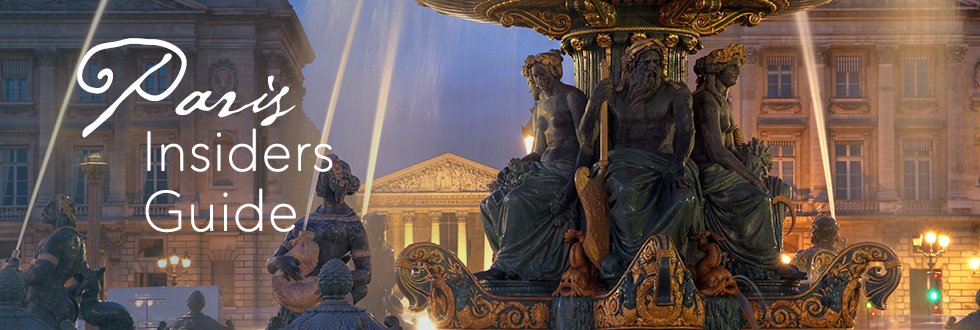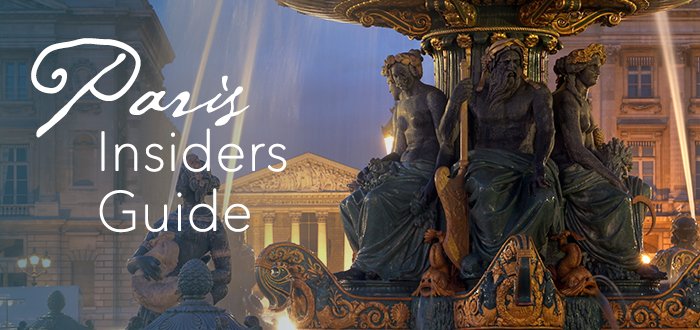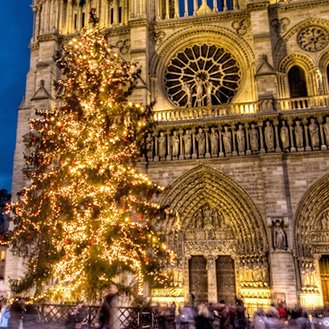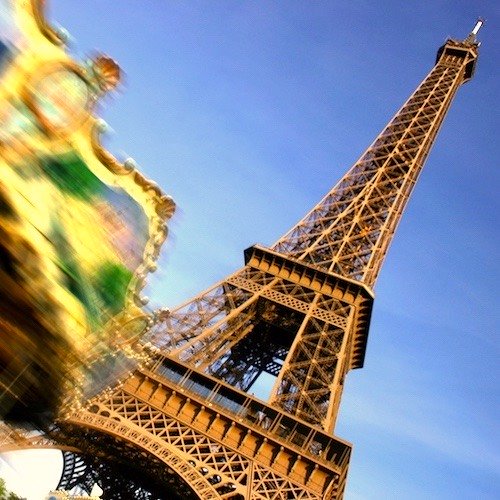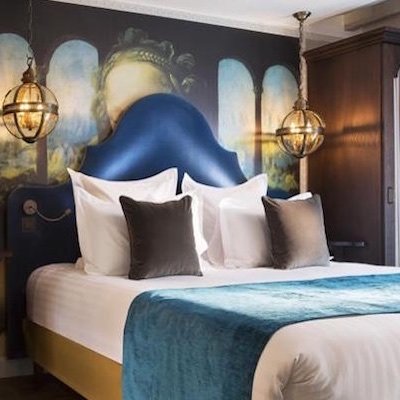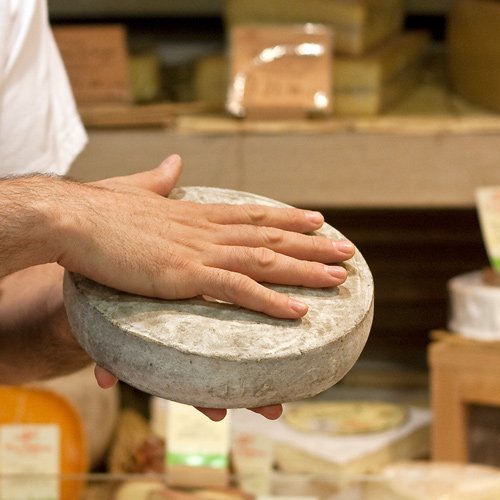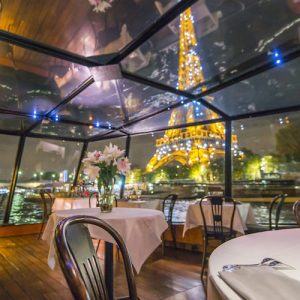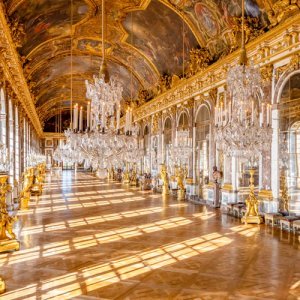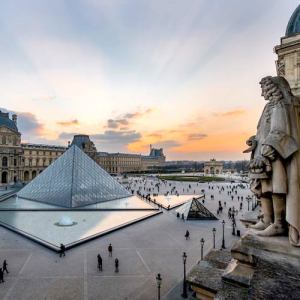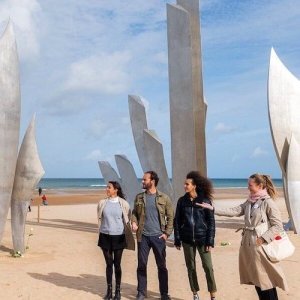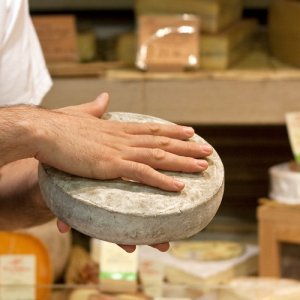Discover Hector Guimard's Paris Metro Entrances
In 1900 Hector Guimard designed the first of many decorative Metro station entrances. Since then they have come to symbolize not only the Paris Metro but Paris itself. In another article we describe Guimard's top Metro station designs, but now let's delve deeper into the world of Hector Guimard for the complete Insider's Guide to all of his remaining, and inspirational, Metro stations.
![]()
Our Top-Rated Paris Experiences
1. Seine River Romantic Dinner Cruise… With live music & champagne
2. Cheese and Wine Tasting in a Private Paris Cheese Cellar… Learn from a Master Affineur
3. Louvre Masterpieces Tour… Skip the lines for the best experience
4. Dinner Cruise with Maxim's of Paris… An Art Nouveau experience from 1900
Hector Guimard & the Paris Metro
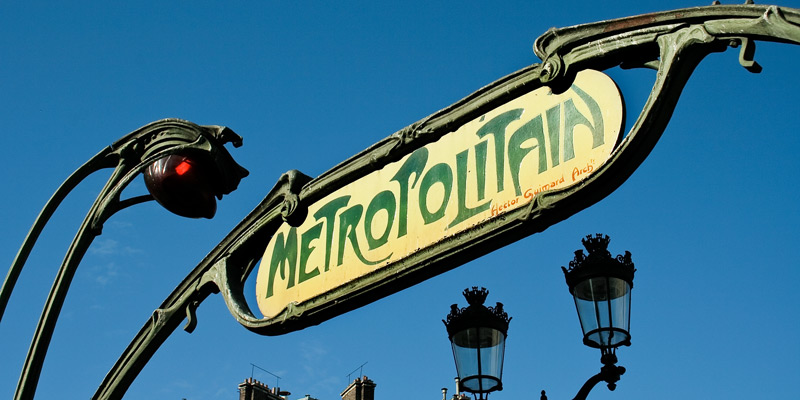 Hector Guimard Metro sign, photo by Mark Craft
Hector Guimard Metro sign, photo by Mark Craft
Paris may not have been the first city to introduce an underground rail system (that title belongs to London), but by the time of the 1900 Paris Exposition, the city was ready to unveil its own sleek, modern solution for mass transit. In 1898, the Compagnie du Métropolitain held a competition to design the new Metro entrances. Hector Guimard (1867-1942) didn't officially enter the competition, but his bold, avant-garde vision using affordable cast iron won him the commission.
Each of Guimard's iconic cast-iron Metro entrances proudly displays the word Métropolitain alongside the station's name. Unbelievably, many of his station entrances were subsequently destroyed, right up until the 1960s. Fortunately for us, at least half have been saved and can still be admired at sixty-seven Metro stations.
The style he employed, called Art Nouveau (as seen in the photo below of the former Metro station at Étoile), emerged around the turn of the 20th century during the Belle Époque, a time that sought beauty in organic, flowing lines inspired by nature. Initially, Parisians were hesitant to embrace Guimard's vision, but once the Metro stations were installed, his designs became a defining feature of the era.
![]()
Discover What's On When You're Here...
• January... |
• February... |
• March... |
• April... |
• May... |
• June... |
• July... |
• August... |
• September... |
• October... |
• November... |
• December... |
Discover What's On When You're Here
• January...
|
• February... |
• March... |
|---|---|---|
• April... |
• May... |
• June... |
• July... |
• August... |
• September... |
• October... |
• November... |
• December... |
![]()
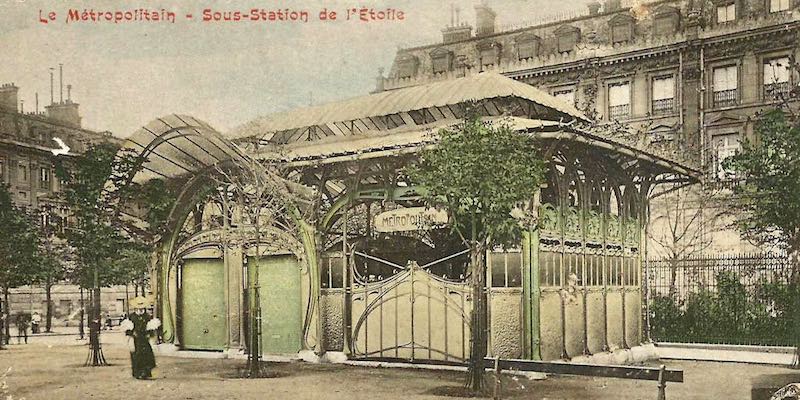 Metro Étoile, since destroyed
Metro Étoile, since destroyed
![]()
Guimard's talents extended far beyond Metro stations. His creativity touched every facet of design — homes, furniture, and countless decorative objects including umbrella stands, vases, picture frames, door handles, and even jewelry.
While art historians today shower praise on Guimard's Metro designs, his contributions were all but forgotten by the time of his death in New York in 1942. Sadly, when he and his Jewish wife, Adeleine, fled France in 1938 to escape the toxic tide of antisemitism, his work faded into obscurity.
Today, you can still spot Guimard's striking Metro entrances across Paris. Some have even been relocated, such as the beautiful entrance at Porte-Dauphine in the 16th Arrondissement. (There's even one at Square-Victoria station in Montreal, Quebec.) Ready for a challenge? Take a look at the full list of Hector's surviving Metro entrances in Paris. Can you pinpoint the arrondissement with the most examples? Or the one district that doesn't have a single Guimard creation?
![]()
Romantic Dinner Cruises In Paris
|
VIP Dinner Cruise with Bateaux Parisiens |
Dinner Cruise by Maxim's of Paris |
|
VIP Dinner Cruise with Bateaux Parisiens |
Hector Guimard's Metro Stations in Paris
![]()
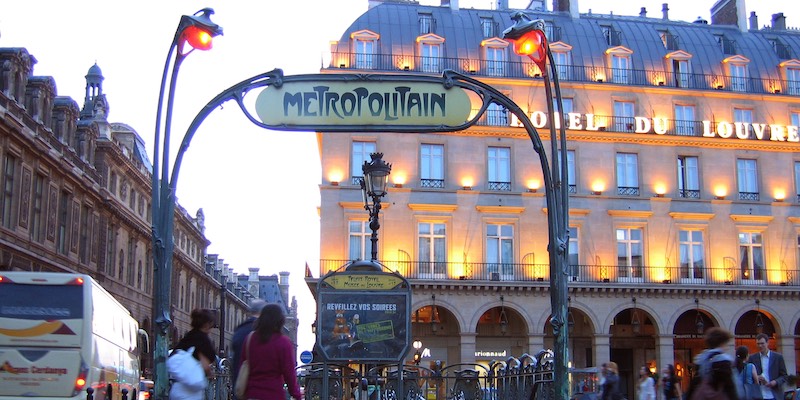 Metro Palais-Royal–Musée-du-Louvre, photo Wikimedia by Simon Law
Metro Palais-Royal–Musée-du-Louvre, photo Wikimedia by Simon Law
In the 1st Arrondissement
Guimard's Metro entrances can be found at these stations —
- Chatelet
- Etienne-Marcel
- Palais-Royal–Musée-du-Louvre
- Louvre-Rivoli
Metro Name Fun Fact
Station Etienne Marcel, on line 4, opened in April 1908, named for the 14th-century revolutionary and provost (leader) of small merchants and guildsmen under French king Jean II. There's a statue of Etienne Marcel at the Hotel de Ville. By the way, the current Chatelet entrance is a modern replica of Guimard's original.
In the 2nd Arrondissement
Guimard's Metro entrances can be found at stations —
- Quatre-Septembre
- Reaumur-Sebastopol
- Sentier
Metro Name Fun Fact
Quatre-Septembre, on Metro line 3 is named for an important date in French history. In 1870, on September 4 (quatre-septembre), the end of the reign of Napoleon III was finalized and the Third Republic was proclaimed. This Metro station opened in October 1904, providing service between Avenue de Villiers and Pere Lachaise.
3rd Arrondissement
- One Guimard entrance — Metro Temple
Metro Name Fun Fact
Also on line 3, Temple is named for a long-demolished Templar fortification that once stood in the Square du Temple in the Marais. The Templar's building gave its name to the Rue du Temple, which gave its name to the Metro station.
![]()
Our Most Popular Day Trips from Paris
|
Spend a Day in the Champagne Region |
Visit the Historic D-Day Beaches |
|
Visit the Historic D-Day Beaches |
4th Arrondissement
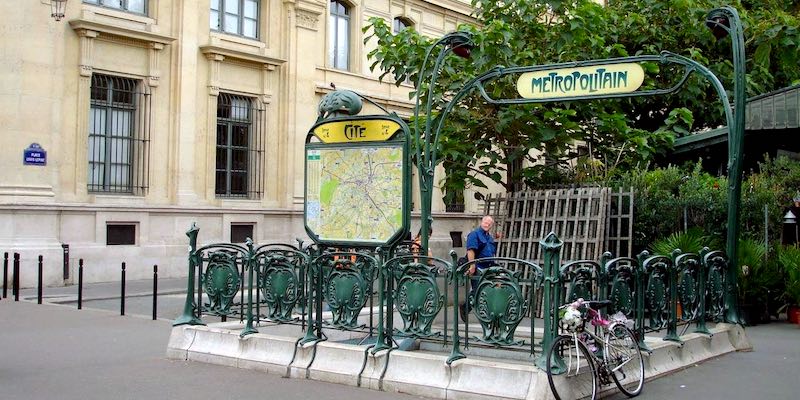 Metro Cité, photo Wikimedia by Clicsource
Metro Cité, photo Wikimedia by Clicsource
- Only one Metro station — Cité — in the center Île de la Cité between Notre Dame Cathedral and La Sainte Chapelle.
Metro Name Fun Fact
Deep underneath Île de la Cité (one of the two islands of Paris) is Metro Cité. The only Metro station on the island opened in December 1910; although tunnels once linked the station to the nearby Prefecture of Police of Paris and the Palais de Justice, they were closed for security reasons so that now the only exit is on Rue de Lutèce, in front of the Prefecture of Police.
5th & 6th Arrondissements
- Saint-Michel–Notre-Dame
Metro Name Fun Fact
Saint-Michel–Notre-Dame, on line 4, in the Latin Quarter, also connects to RER lines B and C (underground). While you're viewing Guimard's entrance (on the west side of Place Saint-Michel), be sure to check out the famous Fontaine Saint-Michel by Gabriel Davioud, just around the corner.
8th Arrondissement
- Europe
- Saint-Lazare
Metro Name Fun Fact
Europe opened in October 1904 and is named after the Place de l'Europe, the square from which streets named for European capitals radiate. This was also the site of the first Paris railway station, Embarcadère de l'Ouest, which opened in 1837.
![]()
Find Hotel Deals for Your Dates in Paris
Check the complete list of Paris hotels to find current sale prices on rooms in every arrondissement. Save 10%, 20%… or even more! |
Paris Hotel Deals |
Find Hotel Deals for Your Dates in Paris
Save on hotels in every arrondissement of Paris – the Latin Quarter, Saint Germain, the Right Bank, the Marais, near the Eiffel Tower. Save 10%, 20%… or even more! |
9th Arrondissement
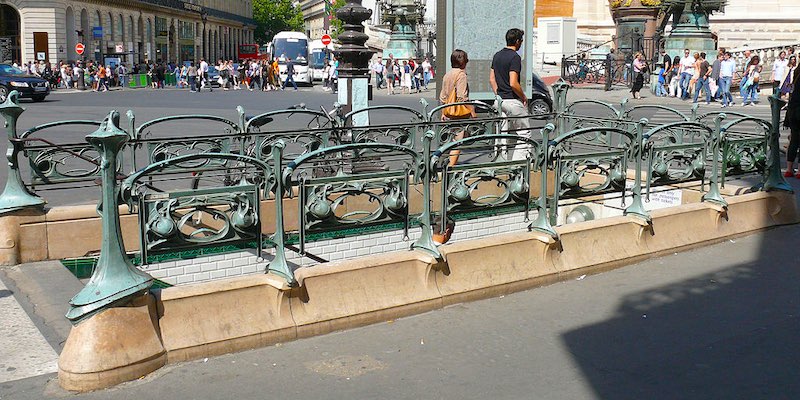 Metro Opera, photo Wikimedia by Mossot
Metro Opera, photo Wikimedia by Mossot
- Cadet
- Opera (corner of Rue Auber and Rue Scribe, kitty-corner from the Nespresso store)
Metro Name Fun Fact
Cadet, on line 7 is named after a wealthy landowner, Monsieur Cadet de Chambine, who just happened to own the land where the street and Metro station is now located.
10th Arrondissement
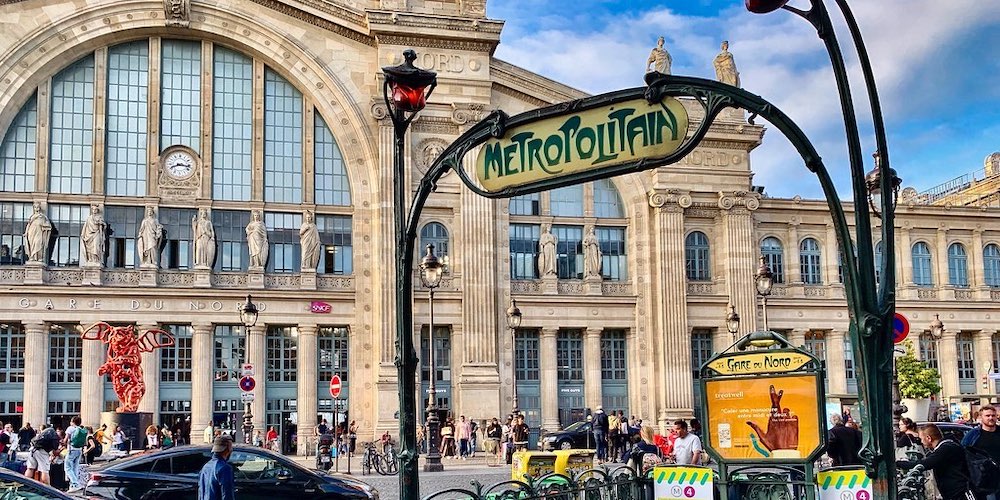 Metro entrance at Gare du Nord, photo from Flickr
Metro entrance at Gare du Nord, photo from Flickr
- Chateau-d'Eau
- Colonel-Fabien
- Gare du Nord
- Louis-Blanc
- République
Metro Name Fun Fact
République serves lines 3, 5, 8, 9, and 11 and is named after the Place de la République, which commemorates the First, Second, and Third French Republics. The Metro station is found directly underneath the place.
11th Arrondissement
- Breguet-Sabin
- Couronnes
- Menilmontant
- Parmentier
- Pere-Lachaise
- Richard-Lenoir
- Rue-Saint-Maur
Metro Name Fun Fact
Parmentier on line 3 opened in October 1904 and is named after Antoine-Augustin Parmentier. He's the man who convinced the world that potatoes weren't poisonous and could be used as a food source for humans. Frites, anyone? Station Pere-Lachaise serves, of course, Pere Lachaise cemetery, where Antoine-Augustin Parmentier is buried.
12th Arrondissement
- Bastille
- Daumesnil
- Gare-de-Lyon
- Nation
- Picpus
Metro Name Fun Fact
Daumesnil, serving lines 6 and 8, honors General Pierre Yrieix Daumesnil (1776-1832), one of Napoleon's star soldiers.
![]()
Experience the Splendor Of Versailles
|
Versailles with Priority Access + Gardens |
Half-Day, Skip-the-Line Tour of Versailles |
|
Versailles with Priority Access + Gardens |
13th Arrondissement
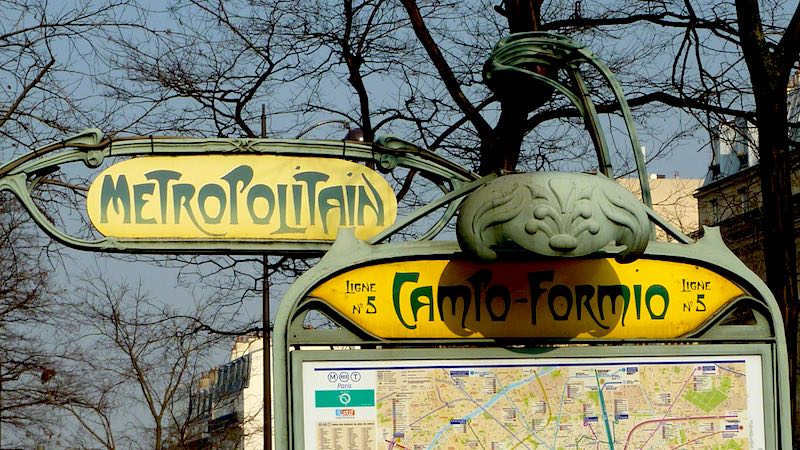 Metro Campo-Formio, photo Wikimedia by Paulparis2010
Metro Campo-Formio, photo Wikimedia by Paulparis2010
- Campo-Formio
- Place-d'Italie
- Saint-Marcel
Metro Name Fun Fact
Saint-Marcel on line 5, serving the University Hospital, is named for a 5th-century bishop of Paris
14th Arrondissement
- Denfert-Rochereau
- Mouton-Duvernet
- Raspail
Metro Name Fun Fact
Raspail on lines 4 and 6 is named for the 19th-century scientist and politician François-Vincent Raspail (1794-1878). Born in Carpentras in Provence, he was one of the founders of the cell theory in biology. The longest boulevard in Paris, Boulevard Raspail, is also named in his honor.
15th Arrondissement
- Pasteur
Metro Name Fun Fact
Opened in April 1906, the Pasteur station honors Louis Pasteur (1822-1895). The renowned French microbiologist and chemist discovered the principles of vaccination and pasteurization and created the first vaccines for rabies and anthrax.
![]()
Top-Rated Paris Museum Tours
|
The Louvre's Greatest Masterpieces |
Musé d'Orsay Guided Tour |
|
The Louvre's Greatest Masterpieces |
16th Arrondissement
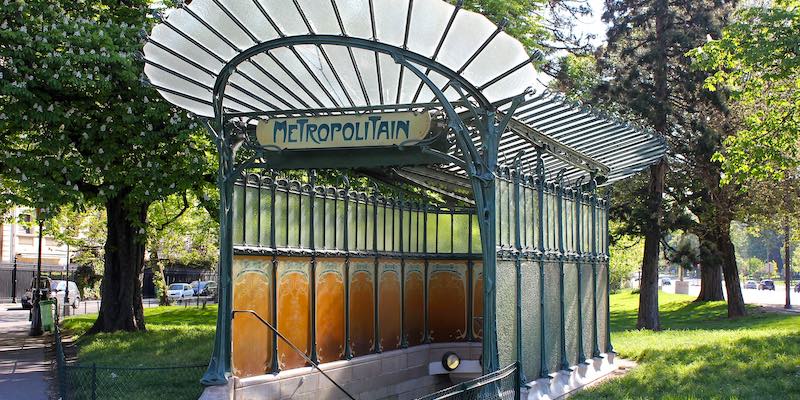 Metro Porte-Dauphine, photo Wikimedia by Bellomonte
Metro Porte-Dauphine, photo Wikimedia by Bellomonte
- Boissiere
- Chardon-Lagache
- Eglise-d'Auteuil
- Kleber
- Mirabeau
- Porte-d'Auteuil
- Porte-Dauphine
- Victor-Hugo
Metro Name Fun Fact
Named for the famous author, the Victor Hugo station (line 2) got a temporary name change in July 2018, when the French national soccer team won the World Cup. The station, located in the 16th Arrondissement was for a short time called Victor Hugo Lloris for the team's captain and goalkeeper, Hugo Lloris.
17th Arrondissement
- Monceau
- Rome
- Ternes
- Villiers
- Wagram
Metro Name Fun Fact
Monceau on Line 2 is near Parc Monceau on the border of the 8th and 17th Arrondissements. Both the station and the park get their name from the former village of Monceau, annexed by Paris in 1860 as part of the expansion of the city under Napoleon III.
![]()
Experience The Left Bank Of Paris
|
Dinner & Cabaret at Paradis Latin Theater |
Chocolate & Pastry Walking Tour of Saint-Germain-des-Prés |
|
Chocolate & Pastry Walking Tour of Saint-Germain-des-Prés |
18th Arrondissement
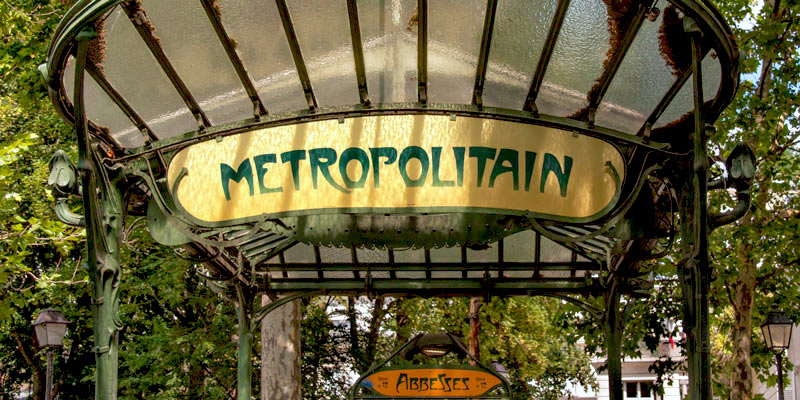 Metro Abbesses (Montmartre), photo by Mark Craft)
Metro Abbesses (Montmartre), photo by Mark Craft)
- Abbesses
- Anvers
- Barbes-Rochechouart
- Blanche
- Pigalle
- Place-de-Clichy
Metro Name Fun Fact
What happens when you marry French Republican revolutionary Armand Barbès (1809-1870) to the scholarly French nun Marguerite de Rochechouart, (1665-1727)? Metro station Barbes-Rochechouart is born. Situated on Paris Metro lines 2 and Line 4, it's where the 9th, 10th, and 18th Arrondissements converge.
19th Arrondissement
- Bolivar
- Botzaris
- Crimée
- Jaures
- Pre-Saint-Gervais
Metro Name Fun Fact
Simon Bolivar (1783-1830) was a hero of South American independence. We're sure he would be saddened to know the history of the Metro station bearing his name on line 7B. During World War I the station was converted into an air raid shelter. As people rushed to the shelter during a bombing on March 11, 1918 panic ensued when the doors jammed. Seventy-six people died in the resulting rush of bodies.
![]()
The Best Evenings in Paris
|
Dinner & Cabaret at the Moulin Rouge |
VIP Dinner Cruise with Bateaux Parisiens |
|
Dinner & Cabaret at the Moulin Rouge |
20th Arrondissement
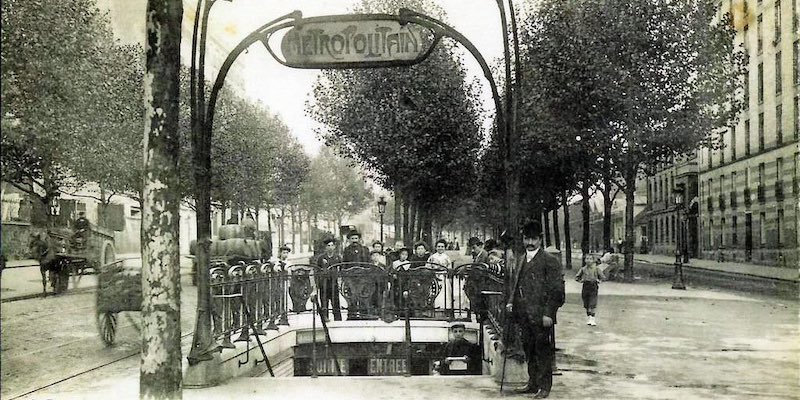 Metro Philippe-Auguste
Metro Philippe-Auguste
- Alexandre-Dumas
- Avron
- Gambetta
- Philippe-Auguste
Metro Name Fun Fact
You say you want a revolution? Philippe-Auguste on line 2 is the only Paris Metro station named for French royalty, Philip II of France, 1165-1223, known as Philippe Auguste. (Learn about the city wall he built.)
Paris Planning Guides
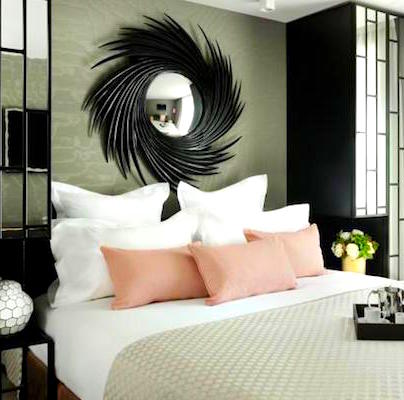 Latin Quarter Hotels
Latin Quarter Hotels |
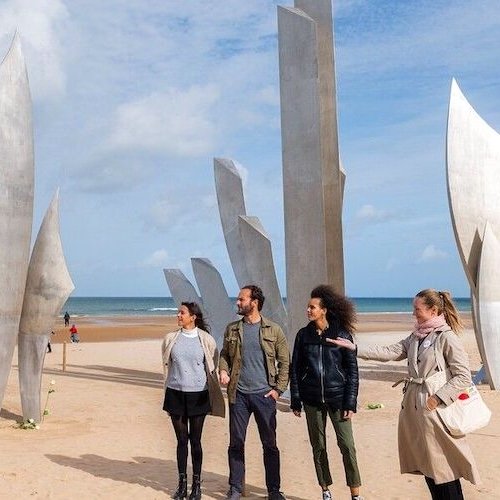 Historic D-Day Tours
Historic D-Day Tours |
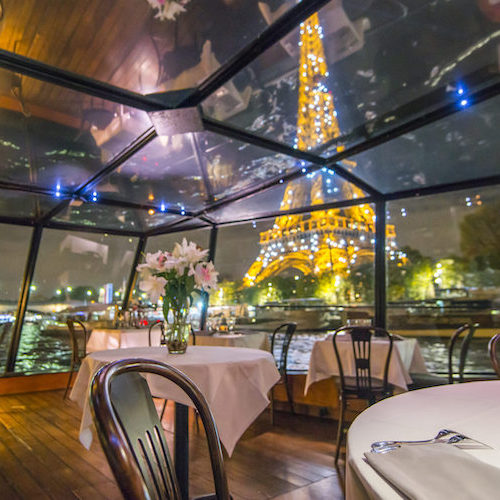 Glorious Dinner Cruises
Glorious Dinner Cruises |
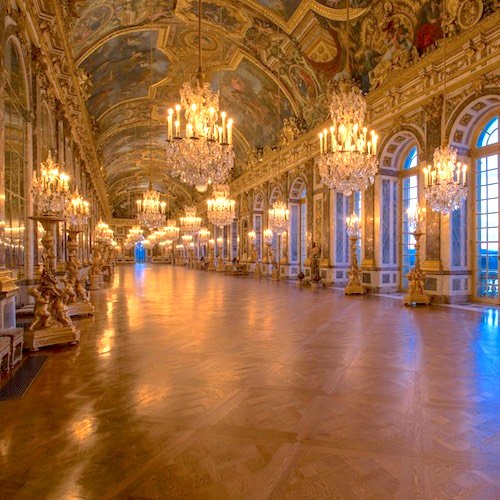 Visiting Versailles
Visiting Versailles |
